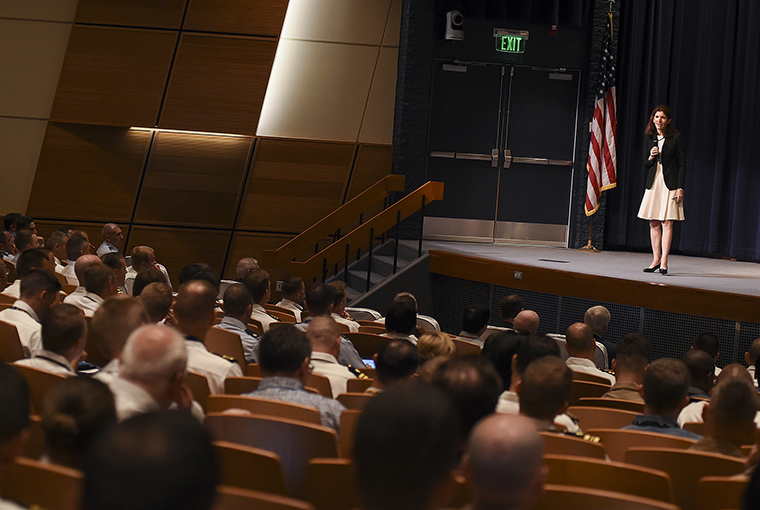Naval War College’s College of Leadership and Ethics Hosts Symposium

NEWPORT, R.I. – U.S. Naval War College’s (NWC) College of Leadership and Ethics hosted a Leadership in the Profession of Arms Symposium for the in-residence student body in the college’s Pringle Auditorium on August 9. The purpose of the symposium was to help frame the academic year and approach to learning, enabling the students to maximize their experience here and better prepare them for future leadership roles.
Adm. William Moran, vice chief of naval operations, provided keynote remarks noting the importance for leaders to reflect on themselves.
“Your responsibility is to train your team how to be good teammates. [However,] you need to train yourself first,” said Moran. “So in this time that you are here it will provide an opportunity to reflect on who you are as a leader, ask yourself if you are good followers. And if you’re not, it’s not hard to work on that skillset. And as you plan to go back into the fleet or back into the field as leaders, it’s a different way to approach entering back into the leadership role.”
Professor Liz Cavallaro spoke on mental complexity and the challenges of growing as a leader.
“As you move forward in your career, you will be less and less able to rely on that thing that you are an expert in,” said Cavallaro. “You will do less and less of the stuff that you’re already really good at. And so all of that vast leadership and knowledge and experience is important, but there is more to be done, or rather, more to be developed.”
Retired Rear Adm. Margaret Klein, dean of NWC’s College of Leadership and Ethics, spoke on how difficult it can be to incorporate this type of thinking.
“Today, we are going to immerse you in the future warfighting topic of you: Your brain, your mindset, your intellect, your heart, your soul, your character.” Klein later added, “We now understand to a greater degree, which we knew before that people are complex. So working with people is a complex operation.”
“If you’re going to be an effective leader, you have to be willing to relinquish control of who you are as a leader and allow those followers to accept responsibility for the team, and then the team elevates itself and works together,” said Moran.
Four other sessions took place on a number of different topics. Navy Capt. John Meyer, deputy dean, College of Leadership and Ethics spoke on the character in the profession of arms. Professor Gene Andersen spoke on self-awareness. Professor Olenda Johnson spoke on critical thinking for complexity. Professor Pauline Kaurin spoke on professional military ethics.
